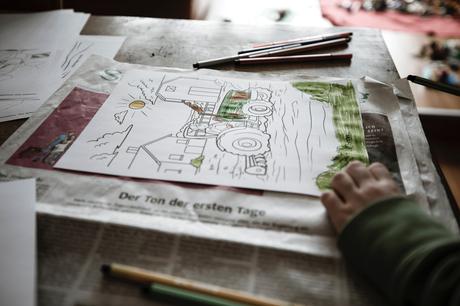
Use play dough
Playing with dough is a good chance for children to try and create an array of shapes and figures. They will be able to use their hands and fingers to make a lot of different shapes, while also learning to manipulate their use in other ways. Watch as your child rolls out the dough, cuts shapes into it, or scores it with their nails.
Try painting with their fingers
Your child can learn a lot about fine motor skills through paint. You can firstly start by letting your child dip their fingers into paint and allowing them to draw by using their fingers. All sorts of creations can be made quickly and easily this way, and it teaches your child a lot more about their abilities with their hands. While very messy, you can then help them learn to keep up a good hygiene routine.
Help your child wash their hands
Part of keeping a solid hygiene routine is washing hands, and children should be taught this from a young age. There’s a good chance your child can learn more about how to use their hands and fingers through the motions you need to keep on top of your cleanliness. Not only are they developing their fine motor skills, inadvertently, but they’re also learning about how to keep themselves clean.
Look into water play
Leading on from teaching your child about hand washing, water play is a good activity to get your child exploring more ways to use their hands and fingers. Have a look at what they can pick up from you through water play, at a starting point. Run your fingers through the water, or grab some cups to fill up water in them. Then, let your child play for themselves and see what they discover.
A lot of this will be taught over time during their time in nursery school and/or preschool, much like what this junior school in London would offer. Making it a fun and engaging activity however will ensure they are harnessing their skills from an early age, preparing them for the future.
